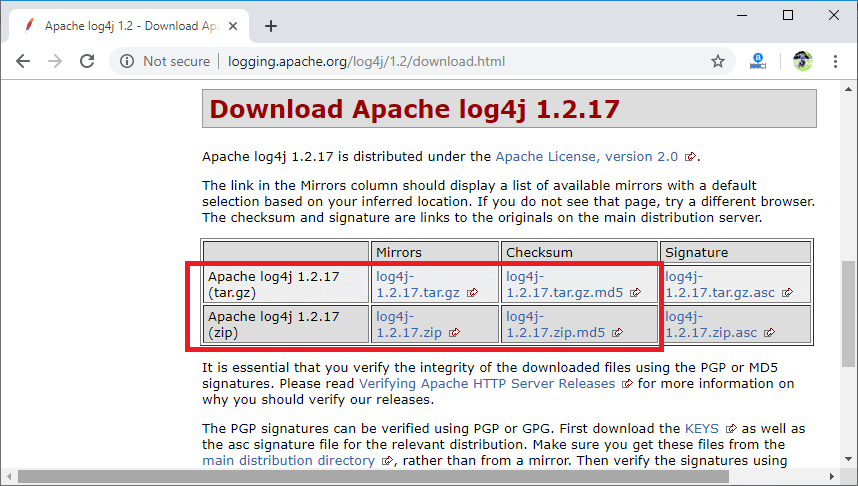

I opened a ticket because if anything detailing pathways for a RCE only leads to more problems so I'll end it here.
OWNCLOUD LOG4J SOFTWARE
Maybe its the trusting of a software module that would execute any binary sent by an untrusted client is the cause. Note: in this thread khawkins and michnovka have already mentioned CVE-2019-17571 but something feels off that I can't rationalize myself. According to the article (below), it mentioned that Apache is exposed. It could also be that lunasec has included this hash when it should not have been but more than likely they feel that CVE-2019-17571 is a concern with so many eyes on CVE-2021-44228. There is a new critical vulnerability found such as log4j so I would be concerned if our NextCloud servers will be exposed or not.

I guess we are too take them at their word that they looked into their code because it kind of looks like CVE-2019-17571 is a problem. Why is ownCloud advising the value of 0 It could lead to XSS attacks. According to Mozilla documentation it seems about right. Usually I set this header to 1 modeblock which prevent rendering of the page if an attack is detected. The exact problem is: "For Apache log4j versions from 1.2 (up to 1.2.17), the SocketServer class is vulnerable to deserialization of untrusted data, which leads to remote code execution if combined with a deserialization gadget.". Hello everyone, since oC10.7 I’ve got a warning in the general section of the admin about the HTTP header X-XSS-Protection. DirectAdmin & Apache WebDAV support missing Memory leak problems on Tomcat log4j, OracleUCP, ThreadLocal Using Nextcloud/Owncloud with Z-push (for CalDAV. To do so, navigate to: Settings Admin General Log Download logfile.
OWNCLOUD LOG4J DRIVER
There are no versions of the MongoDB Java driver using log4j by default. This is because of CVE-2019-17571 which has recently been revised. You can use the webUI to download your ownCloud Server log file. SLF4J is an API that allows developers to use any type of logger provider (JUL, Log4J, JCL, Logback, ) so you should check dependencies introduced by your application code. Most modern projects I've seen use SLF4J + Logback, rather than Log4j. Popular is a fucking understatement, if this was in less than 80 of serious Java applications/systems in the wild I would be stunned. Tar xvf lunasec_1.0.0-log4shell_Linux_x86_64.tar.gzġ2:41AM INF identified vulnerable path fileName=org/apache/log4j/net/SocketNode.class path=/opt/zimbra/jetty_base/common/lib/log4j-1.2.16.jar versionInfo="log4j 1.2.16"ġ2:41AM INF identified vulnerable path fileName=org/apache/log4j/net/SocketNode.class path=/opt/zimbra/lib/jars/log4j-1.2.16.jar versionInfo="log4j 1.2.16" yes, you can exploit this with chat because the server and client log chat messages in console using log4j.


 0 kommentar(er)
0 kommentar(er)
